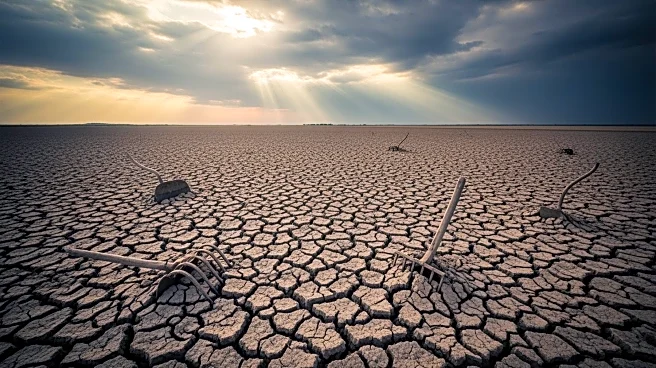What's Happening?
The United Nations' Food and Agriculture Organization (FAO) has released a report detailing a $3.26 trillion loss in global agriculture over the past 33 years due to natural shocks. The report highlights the impact of disasters such as droughts, floods,
pests, and marine heatwaves on agricultural production, resulting in significant losses of cereals, fruits, vegetables, meat, and dairy. Asia experienced the largest share of economic losses, followed by the Americas and Africa. The FAO emphasizes the role of digital technology in mitigating these impacts, advocating for increased investment in digital infrastructure and policy frameworks to support vulnerable communities.
Why It's Important?
The report underscores the vulnerability of global agriculture to natural disasters and the economic implications for food security and livelihoods. The significant losses highlight the need for proactive measures to enhance resilience in agrifood systems. Digital technology is positioned as a key solution, offering tools for early warning systems and risk reduction. The findings have implications for policymakers, businesses, and international organizations as they seek to address the challenges posed by climate change and environmental degradation.
What's Next?
The FAO calls for more investment in digital infrastructure and capacity building to ensure that smallholders, women, youth, and indigenous communities benefit from technological advances. Governments and private sector partners are encouraged to integrate digital risk-reduction tools into national agriculture strategies. The report may influence future policy decisions and international cooperation efforts aimed at strengthening agrifood system resilience and limiting future losses.
Beyond the Headlines
The report highlights the ethical and cultural dimensions of disaster impact on agriculture, particularly for vulnerable communities. It raises questions about the equitable distribution of technological benefits and the role of international organizations in supporting sustainable development. Long-term shifts in agricultural practices and policies could affect global food security and economic stability.

















